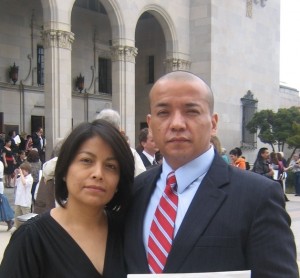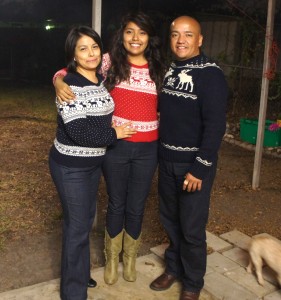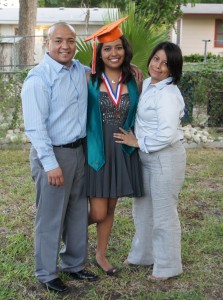
Here in the United States, I have lived and experienced many things from the Great Recession to the election of the first Black president. Ideologically, the election of the first African American president has marked the world in many ways. We know that the United States is a country full of immigrants from all parts of the word. Unfortunately, racism and white supremacy are still present and many People of Color still feel pushed aside by white folks who do not see us as equals, who continue to classify and belittle us. I remember feeling this tension soon after I arrived in this country. I had to feel this inequality and face it. So of course, seeing that Americans had chosen an African American as a president was an overwhelming feeling of joy. Suddenly, skin color was not so limiting in this country. Suddenly, we all had a reminder that it did not matter if you were a Person of Color, from a different culture, from a different nationality, of a different language; we all still had opportunities in this country. We were all the same.

So many of us cross borders looking for this so-called American Dream. This infamous dream can be catalogued in various ways because we all experience different dreams, thoughts, and longings. Some of us look for the dream of liberty, some of us look for economic gain, some of us look for social liberation, but when you combine all of these dreams, you find yourself headfirst with the American Dream. When I was first faced with the opportunity to come to the United States, I felt an impulse that led me to where I am today. That is why, despite various difficult situations I still remain in this country twenty years after. We have all found away to pay our journey forward.
Perhaps the American Dream is much more complex than what I can portray. But, context is important; when you come from a needy country, you try to find a way to develop your character, to overcome your obstacles and to become better. You dream of giving your family a better life, you begin to dream tirelessly. You begin to collect small pebbles and join them together to build a home. You begin to furnish this home while simultaneously giving your children the opportunity for an education, to learn new things. You realize that the system is not perfect, but at least this system gives them an opportunity to become a better person, to thrive.
The opportunities that I was granted here in the United States, have shaped the perception that I have of having a home. Although this country is not mine, it has adopted me. Here, I have been able to find resources, education, and work. Here, I have been able to form a home for my family, even if it is in our adoptive country.

Some years ago I was able to become a citizen of this country. When I was presented with citizenship, I felt as if many doors had opened. I was able to give myself the opportunity to vote and to take part in electing my representatives and government. That is an opportunity many do not have, and it is something that I definitely use to my advantage.
Citizenship has shaped the way I see things. However, one thing that will never change is the way that I see my country. Becoming a citizen does not change the fact that you are Mexican, or Colombian, or Venezuelan, or whatever other nationality, because culture is something that transcends centuries, it is something that we carry with us through our heritage and our blood. There is some things that simply cannot be changed, even if you decide to Americanize. My name is Adrián, here they call me Adrian [without the accent], but that does not change anything because I am still the same Adrián. I carry my culture in my blood, and in the color of my skin. It is comical because that is something that not even citizenship can change.
In my particular case, I feel very proud of being Mexican; that is something that I live, feel, and enjoy. Being an American citizen has given me a privilege that I also respect and enjoy, however that is also filled with many obligations. I have many obligations and respect for the country that continues to give me opportunities to develop as a person, and to own my home. Here in the United States I have my home, but in Mexico, I have my heart.